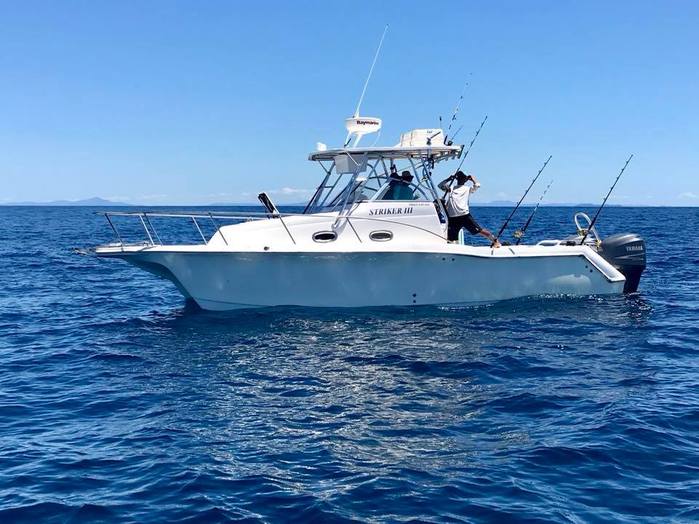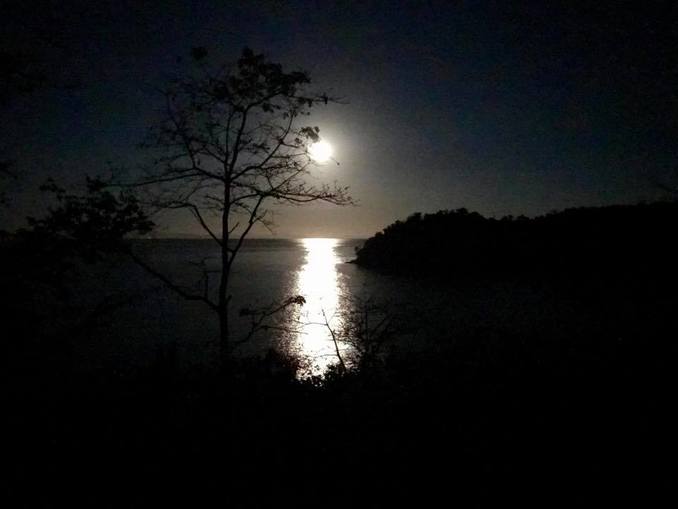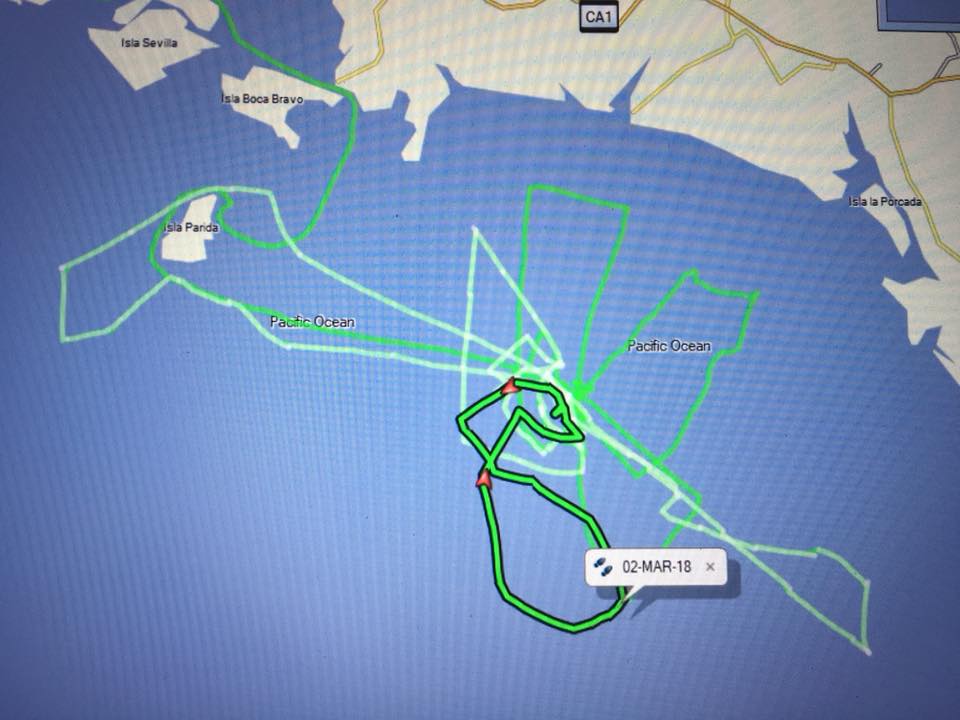Today we surveyed the southern margin of our study area around Islas Secas. No humpback whales were seen or heard on the hydrophone. But we received notification from a sports fishing vessel that they had seen them yesterday at Islas Paridas, so that’s where we’re going tomorrow.
We’ve been having excellent weather and we have seen lots of groups of pantropical spotted dolphins during the expedition. They are by far the most common species of cetacean in the Gulf of Chiriquí. We often see them in association with logs and sticks, as they attract small fishes, so the dolphins use them like floating restaurants. Or at least cafés.
We usually take a 15 min break from surveying to eat our sandwich for lunch, while we drift with the engine off to enjoy a moment of quiet. During lunch break today, a pair of spotted dolphins approached us very cautiously. Probably thinking our research vessel Chiripanga was a very big log, they came over to inspect it. Interestingly, only the larger animal in the pair came close, and when the smaller one tried to get close, the larger one pushed it away. We’re guessing this was a mother and her calf and that she was being protective of it. Some days the highlight is the entertainment provided by a momentary lunchtime visitor, be it a yellow-bellied sea snake or an inquisitive dolphin. We’ll gladly take what we get.






